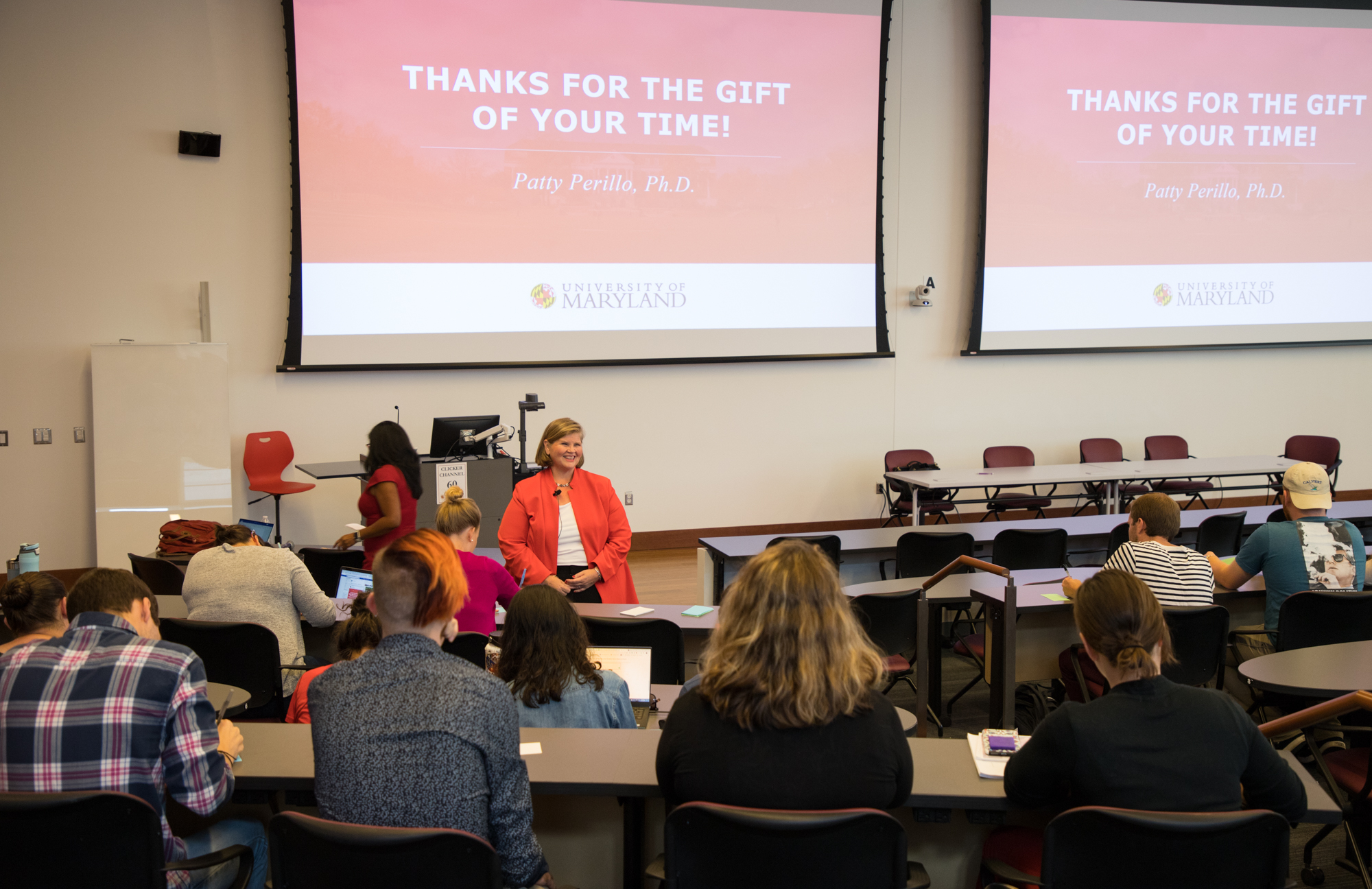Patty Perillo, the University of Maryland’s student affairs vice president, addressed the RHA Senate at its meeting Tuesday night, updating it on the offices’ efforts to address students’ well-being during the pandemic.
Concerns about the effects of COVID-19 on both mental and physical health have been circulating since students returned to the campus in August. Perillo said her team, with the help of the 13 departments in the student affairs division, is working to find ways to connect and help students cope.
“The last pandemic like this was 100 years ago,” Perillo said. “But in our lifetime, we are living through this.”
Perillo discussed how she meets with what she called the “Student Affairs Response Team” — which includes leaders in the University Health Center, among others — every day to assess how to combat the spread of COVID-19, and she provided insight into the division’s plans to support students’ mental health.
“For our students, it’s really clear that there’s increased anxiety, increased depression, less overall sense of well-being, increased loneliness and significantly increased financial burdens,” she said. “It’s really compounding.”
Perillo emphasized that right now, it’s most important to have “community” on campus.
[Mental health advocacy groups at UMD are ramping up their efforts to help students]
She said the university has been communicating with students through updates on Maryland Today and weekly emails about campus activities. The Counseling Center is also trying to increase awareness of campus mental health services on Instagram, Twitter and Facebook.
Additionally, the division is looking to provide support for students after the presidential election. It is actively thinking of ways to be there for students, mentioning the possibility of creating socially distant safe spaces on the campus for 20 to 30 people to congregate.
Perillo also mentioned the possibility of a town hall the day after results come in.
“The elections are just another hard, hard, hard part of this,” she said. “We are all so polarized as a country that no matter who wins, there are going to be people who are devastated.”
[UMD students face obstacles finding work as COVID-19 continues to limit job availability]
Many Residence Hall Association representatives asked questions about the logistics of COVID-19 precautions on campus, asking about testing availability on the campus and the possibility of a pass/fail grading amid the pandemic.
Other representatives gave suggestions on how the student affairs division could reach more students.
Michael Purdie, national communications coordinator for the RHA, suggested the office further use social media rather than email blasts, and Amanda Nwokoro, who is a part of the RHA’s Transportation Advisory Committee added she wished she could receive one condensed version instead of receiving multiple Maryland Today emails.
“So many students don’t want to check email sometimes because we get bombarded with emails all the time,” Purdie said. “Especially right now because of COVID.”
Toward the end of her talk, Perillo told students that, however possible, her office and the university at large wanted students to feel taken care of.
“You’ve got an administration who cares a whole lot about you,” she said.



